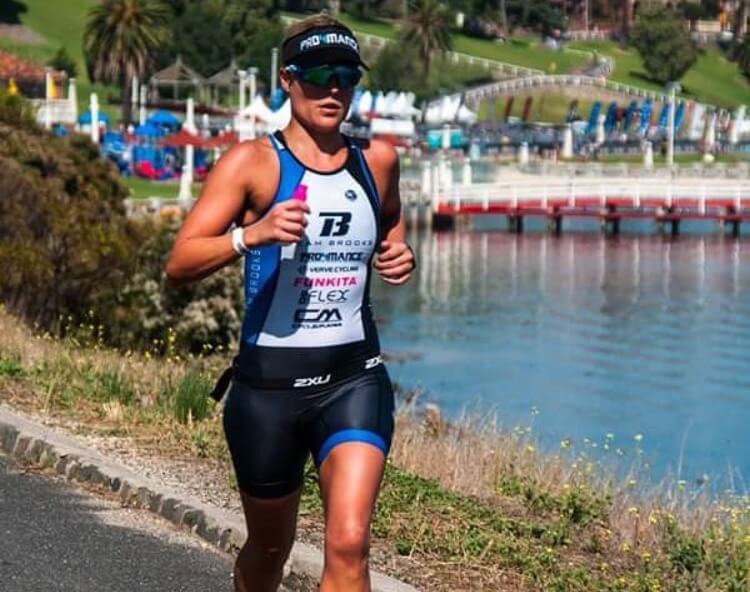
By guest blogger, Professional Triathlete and Prolete, Alise Selsmark.
‘To learn to succeed, you must first learn to fail’. – Michael Jordan
In the past few years of being involved in triathlon; firstly as an age grouper and now as a professional triathlete, it has become apparent to me that there is much more to being successful in the sport than just having talent, a good degree of physical ability and a good work ethic. Sure, these are all key ingredients to success in sport, but what is it that sets some athletes apart? You know… the ones who rarely seem to have an off day of racing, and always seem to come out on top no matter what?
I’ve always had a fascination with human behaviour and interaction, which is probably what led me to study Social Science and pursue a career as a Youth Support Worker in my other ‘day job’. Having trained in a couple of different triathlon squads with both junior and adult athletes over the past few years, its been interesting to observe the many diverse personality types in the sport. By observing the way that athletes react and respond to certain situations, there is one thing that stands out to me which sets some athletes apart to become super successful and enjoy a longevity in the sport without ‘burning out’; that is the element of mental toughness.
So what is mental toughness and how do athletes become mentally tough to ultimately improve their racing? Here are my humble thoughts and musings about some different aspects of mental toughness.
- Resilience
This is a bit of a popular buzz word that seems to get thrown around a lot lately. Essentially I see resilience as the ability to effectively process and cope with life stresses. Adverse life events will always inevitably arise for an athlete at some stage; whether it’s injury, the stress of packing and travelling to a race, financial stress, relationship break down, moving house… these things all affect our training and racing in some way. The ability to remain positive and regulate emotions during these circumstances is what sets some athletes apart. It seems that great athletes are able to compartmentalize the different areas of their life in some way ie; they are able to switch off from other life stresses during training and racing, and often view their sport as a great release for stress.
- Don’t be afraid to fail
A fear of failure can be hugely limiting for an athlete wanting to move forward towards a specific goal. It can be the cause of self-sabotage, a lot of anxiety, and in more extreme circumstances it can make athletes want to withdraw from racing altogether. I find that breaking large goals down into smaller achievable steps can help to build confidence as you move towards your goal, minimising the feeling of being overwhelmed and fearful that your goal is unattainable.
- Surround yourself with people who lift you higher
This is SO important for athletes. Motivational speaker Jim Rohn said that ‘you are the average of the five people you spend the most time with’. For an athlete, these five people are often made up of a coach, squad mates, family members and/or a partner. Make sure that these people empower you and support you to achieve your goals, and you will find that you will want to do the same for them in return. Spending time with happy people who have great energy enhances your training, racing and quality of life. When the people around you believe in you, you are more likely to believe in yourself. Likewise, distance yourself from negative people who suck the life out of you. These are the people who drag you down, criticize, and make you doubt yourself and your ability.
- Independent thinking
There is so much conflicting information out there in sport (especially on the internet) when it comes to different training programs, nutrition, the best equipment to use… the list can go on. Successful athletes tend to have the ability to think for themselves and make smart decisions. This usually means working with a coach and a training program that you trust, and having the confidence to commit to it 100%. So many athletes tend to freak out when they hear another athlete talking about the huge volumes of swimming/biking and/or running that they’ve been doing. It can plant seeds of doubt and prompt thoughts of ‘Have I been doing enough? My training program is nothing like that, is it going to work?’ Just trust the process and make your own decisions with the guidance of your coach. The rest will fall in to place.
- Back yourself and your ability
It’s important to expect success from yourself. Trusting your capabilities and the work that you’ve done in the lead up to an event will be important when you get to that painful stage during a race when the little pestering voices in your head start piping up saying things like ‘you’re not strong enough… you can’t do this…’ but you’ll be able to dig deep and tell those little voices to pipe down! J
- Keep it fun!
I tend to see a few athletes that become so consumed by getting good race results that they become constantly stressed and forget to enjoy the process of training, interacting and having the odd laugh with squad mates, and smelling the metaphorical roses every day along the way. Every athlete has bad training sessions from time to time. Sometimes it’s good to have a laugh at yourself and know that tomorrow is a new day to have another crack. My motto: A happy athlete is a fast athlete. Remember to enjoy the ride and the good results will come.
Follow and support Alise’s triathlete journey via Facebook Alise Selsmark- Professional Triathlete or Instagram @aliseselsy or Twitter @aliseselsy